When an earthquake hits with a seismic intensity of 5 in Japan, most people do get surprised.
But what might shock foreigners even more is how calm Japanese people often appear—even during a fairly strong quake.
You might see someone calmly watching TV, sipping tea, or just saying, “Oh, it’s shaking again.”
No panic. No screaming. Just a casual reaction. But how is that possible?
Let’s dive into why earthquakes are so common in Japan, and why Japanese people seem so unfazed by them.
🌍 Why Does Japan Have So Many Earthquakes?
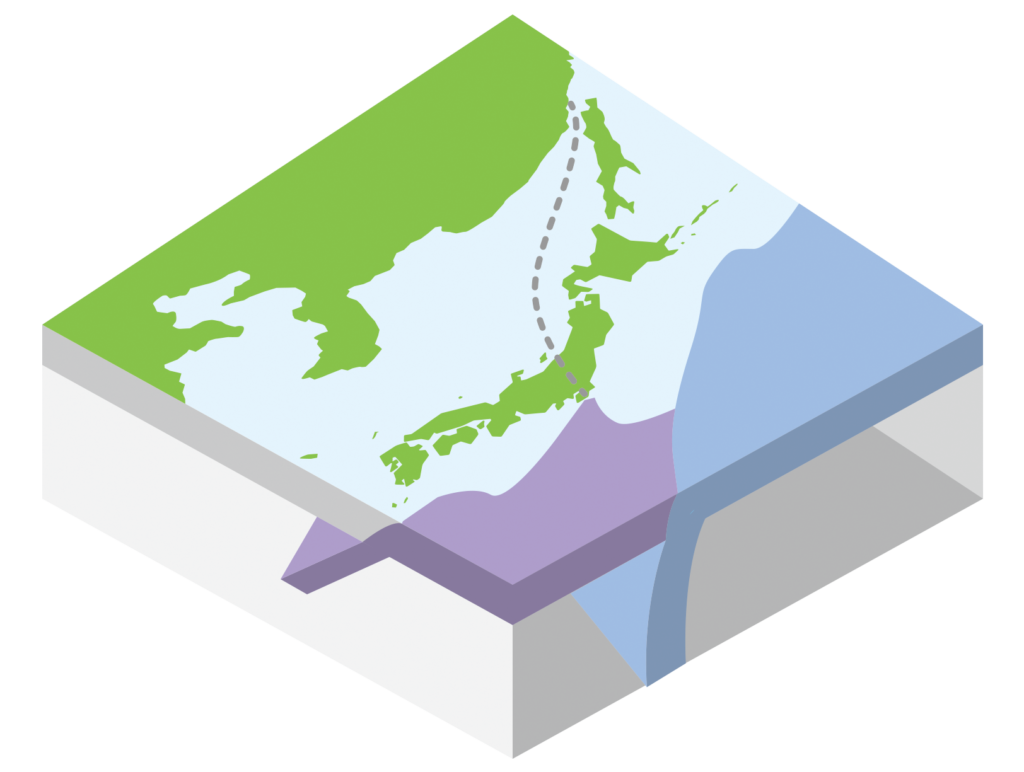
Japan is located right on top of the collision zone of four tectonic plates:
• Pacific Plate
• Philippine Sea Plate
• North American Plate
• Eurasian Plate
These plates constantly press against and grind beneath each other, building up tension.
When that tension is suddenly released, an earthquake occurs.
In fact, about 20% of the world’s earthquakes of magnitude 6.0 or higher occur in or around Japan.
So for people living here, earthquakes are simply part of life.
📱 Earthquake Alerts? Just Another Notification
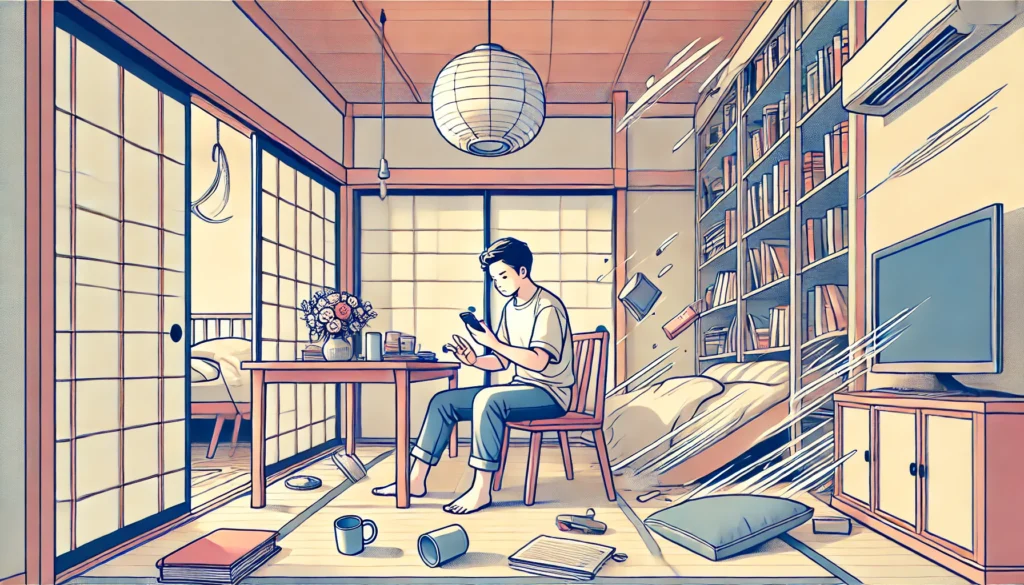
In Japan, TV programs and smartphones regularly broadcast earthquake early warnings.
A loud “ping” or buzz alerts people a few seconds before the shaking hits.
And how do people react?
“Oh, here it comes.”
“Where’s the epicenter?”
Keeps eating dinner calmly.
This calm response might look surreal to foreigners. But for Japanese people, it’s pretty routine—though not because they’re fearless or careless.
🤔 What Does Seismic Intensity 5 Really Mean?
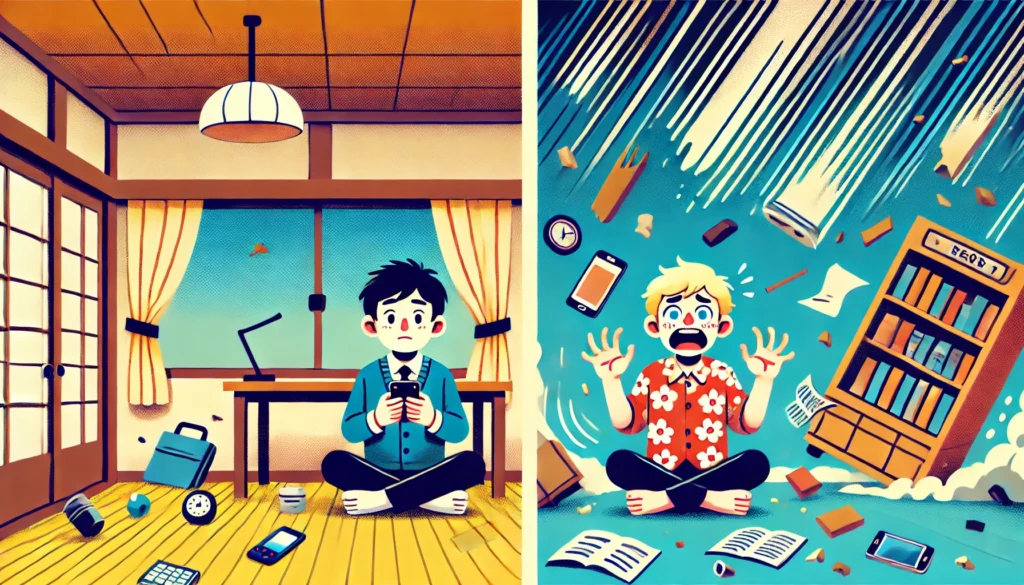
In Japan, the strength of shaking is measured using “Shindo” (seismic intensity), rather than just the earthquake’s energy (magnitude).
| Shindo | Japanese Reaction | Foreign Visitor Comparison |
|---|---|---|
| 3 | “Just a little shake.” | Water in a glass jiggles |
| 4 | “Hmm, not bad.” | You feel it clearly and may wobble |
| 5- (Lower 5) | “Okay, this is a real one.” | You feel it clearly and may wobble |
| 5- (Lower 5) | “That was strong!” | Hard to walk straight; furniture might fall |
| 6+ | “Time to evacuate.” | Major damage possible; very dangerous |
Even Shindo 5 is strong enough to scare people—it’s not “nothing.”
But what’s surprising is that many Japanese people don’t panic even at this level.
Why Don’t People Hide Under Desks?
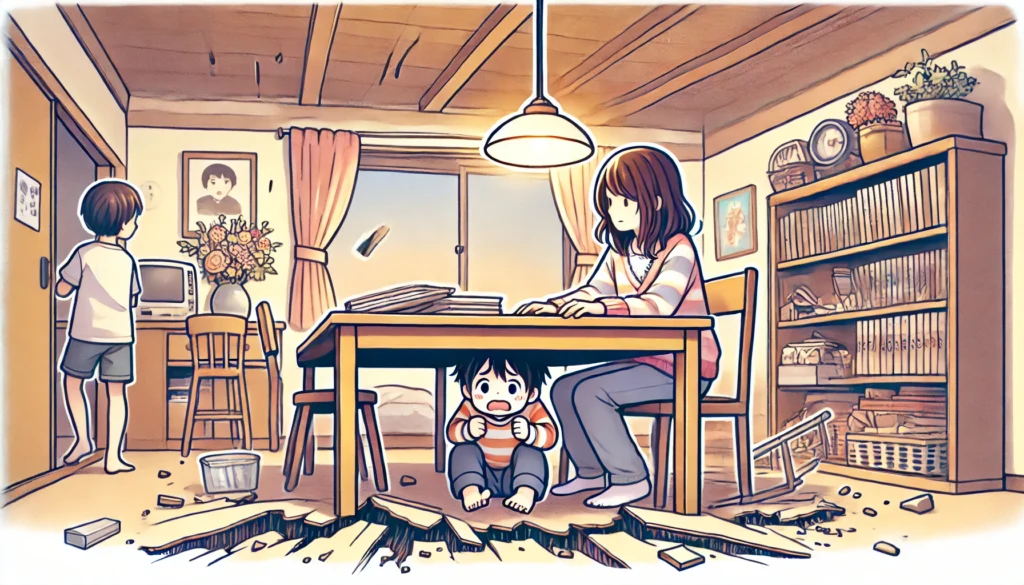
In school, Japanese children are taught to duck under desks during earthquakes.
But in everyday life, most adults don’t actually do this anymore.
Why?
• Buildings are designed to withstand strong quakes
• People have an instinctive feel for how dangerous a quake is
• Everyone checks their phone for updates within seconds
They may brace themselves or protect items from falling—but usually, they don’t panic.
It’s Not Just Habit—It’s Preparedness
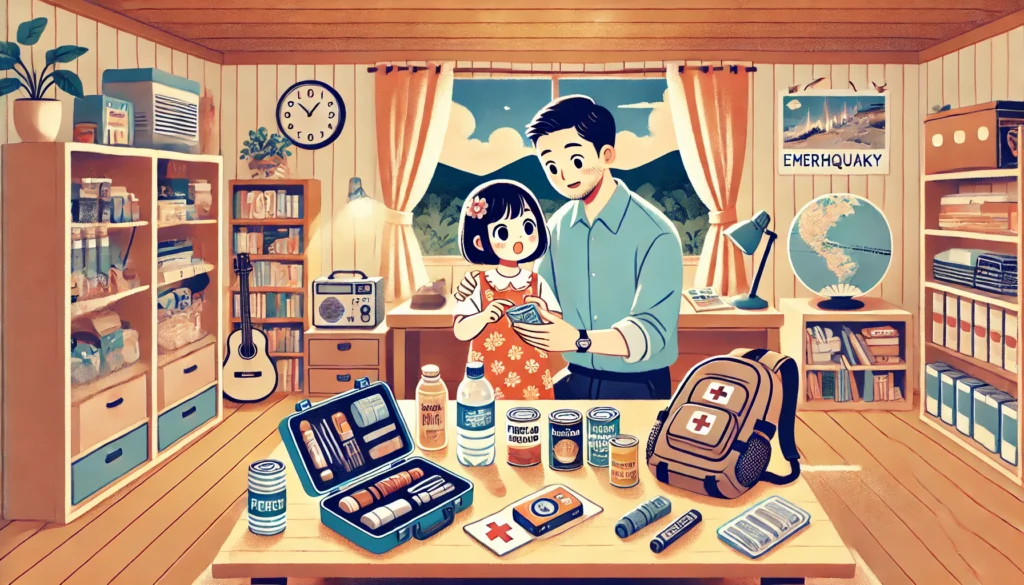
This calmness comes from education and experience, not ignorance.
From a young age, Japanese kids learn:
• How to evacuate during a quake
• Where to meet family members if separated
• What emergency supplies to keep at home
Many families prepare “go bags” with food, water, flashlights, and first-aid kits.
Disaster readiness is just part of daily life.
Japan’s Earthquake-Resistant Buildings
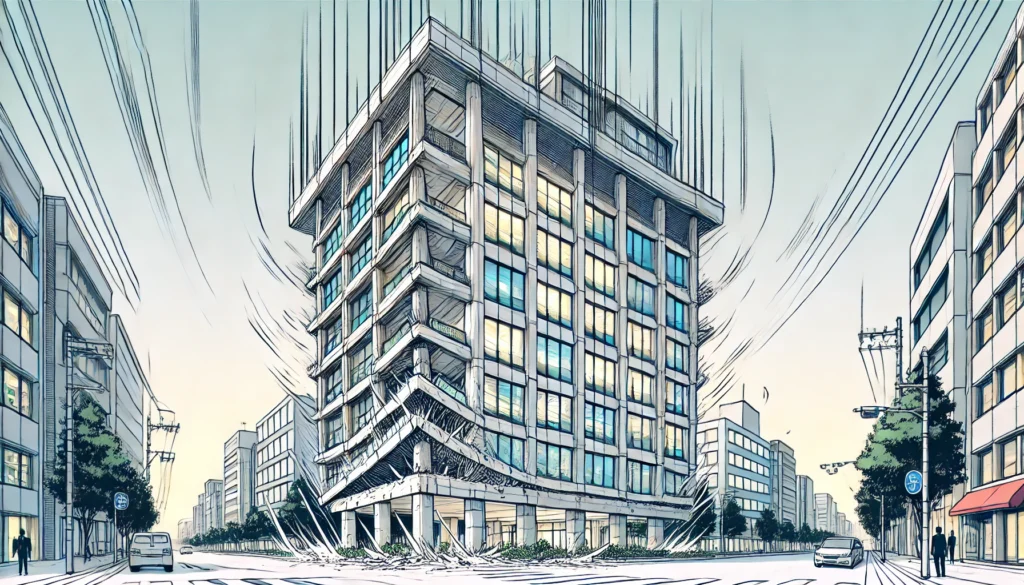
Japan is also known for its world-class earthquake-resistant construction.
• Trains like the Shinkansen automatically stop during strong quakes
• Elevators stop at the nearest floor and open their doors
• High-rise buildings use special dampers and shock absorbers
Thanks to this, people trust the safety of their buildings, which helps them stay calm.
🧠 Never Forget the Big Ones
Even though people stay calm, they’re not careless.
Japan has suffered major earthquakes in recent history:
• 1995: Great Hanshin (Kobe) Earthquake – over 6,000 deaths
• 2011: Great East Japan Earthquake – over 20,000 dead or missing
These tragedies serve as powerful reminders.
Many Japanese people live with the mindset:
“The big one will come someday—so be ready.”
Conclusion:💡 So, Why Are They So Calm?
From the outside, it may look like Japanese people are weirdly chill during disasters.
But in reality, it’s a mix of:
• Deep earthquake knowledge
• Constant preparedness
• Reliable infrastructure
• A cultural mindset of staying calm in a crisis
Earthquakes are scary—but panic doesn’t help.
And that’s something Japan has learned the hard way, many times over.
Recommended Articles




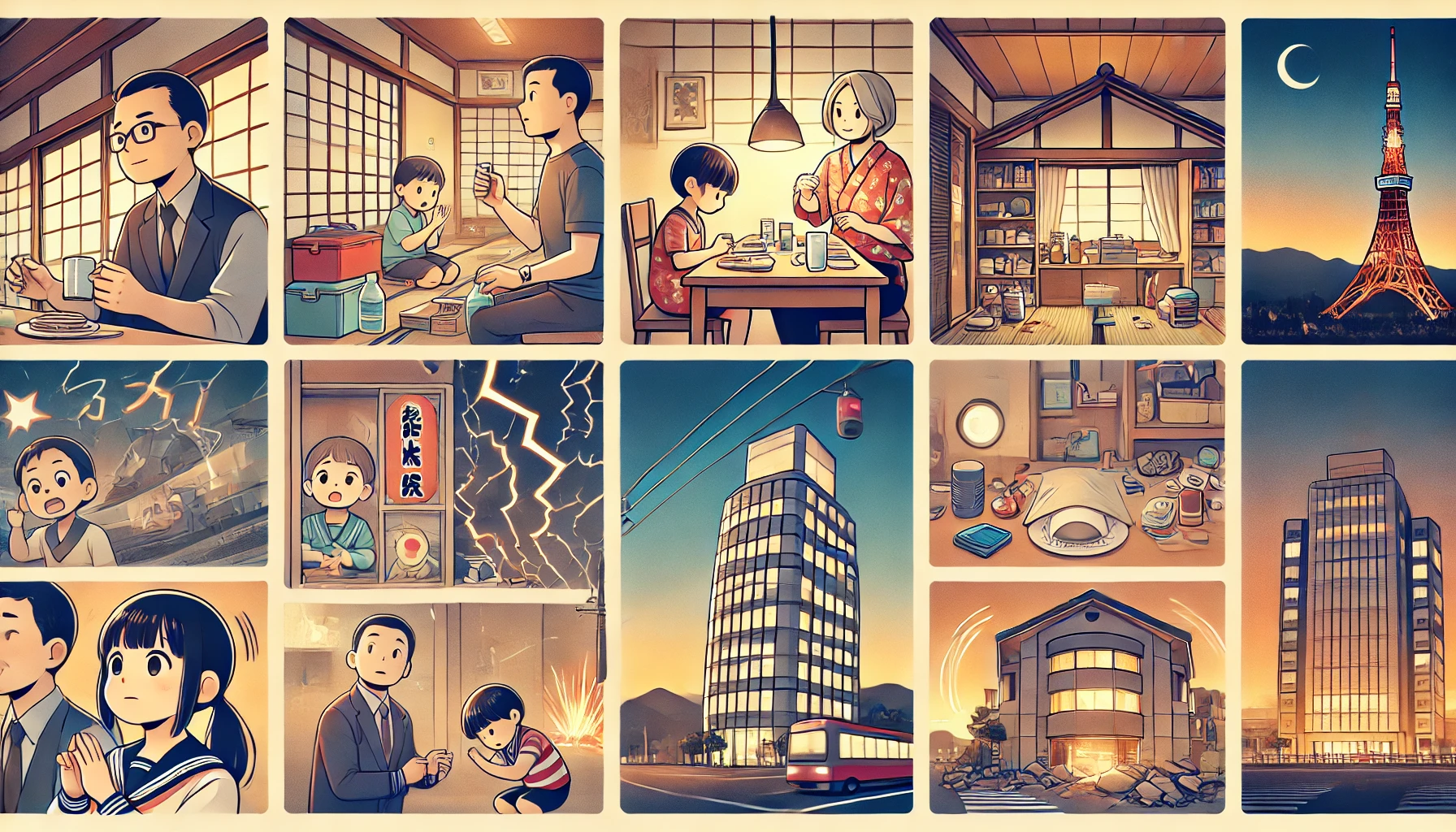


Comments